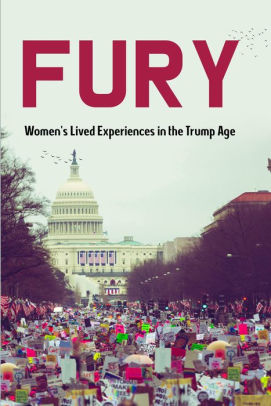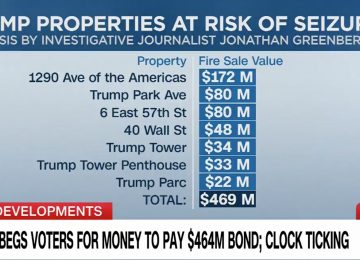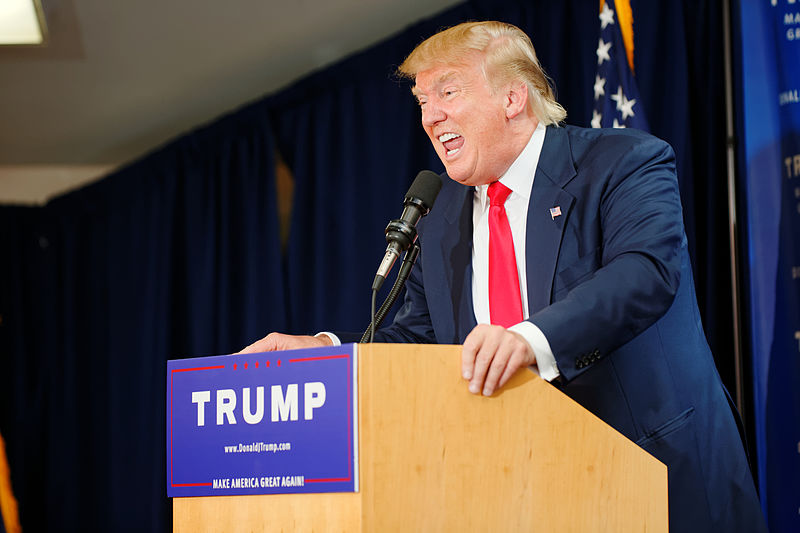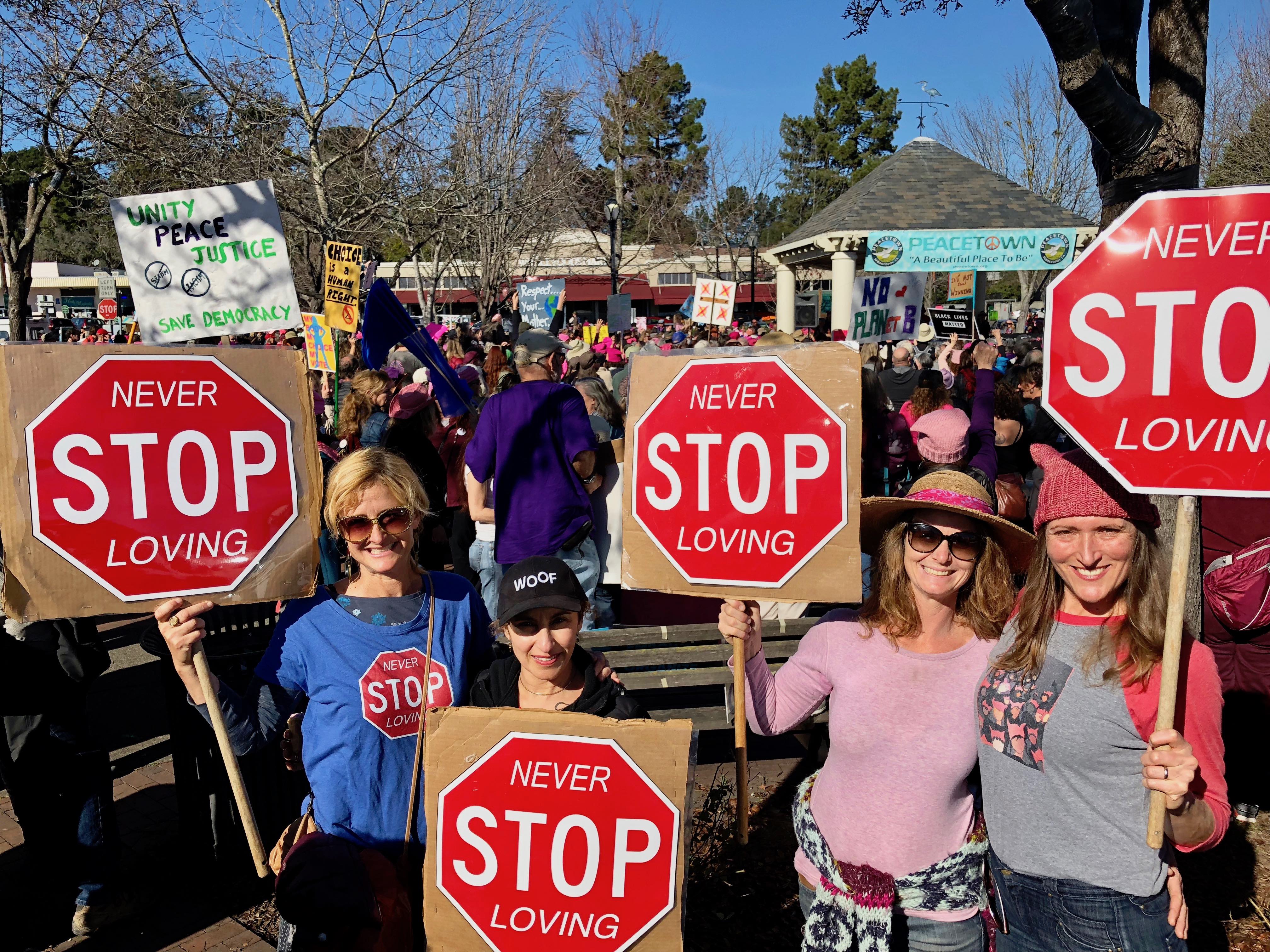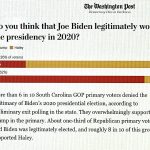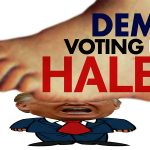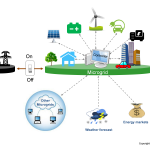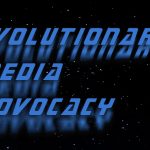You would think that Fury: Women’s Lived Experiences During the Trump Era would be dominated by a tone of anger, but these 38 spirited essays (available at bookstores and from the publisher’s website here) are far more nuanced than that.
They are personal narratives infused with courage, humor, and resilience, making this collection a heartening and enjoyable read.
Trump’s election brought plenty of anxiety and discouragement: “Everything we stood for, writes Amy Roost: “agency over our bodies, the feminine ethos of caring and humane treatment of others, role modeling for our children, to name a few—suffered a direct hit in the form of the ultimate self-aggrandizing toxic male.” Psychotherapist contributors note a spike of symptoms in already traumatized patients when they realize that their new president is a woman-hating bully, unrepentant groper, and sexual harasser who exacts vengeance on immigrants, people of color, and anyone who stands up to him. Alissa Hirshfeld-Flores even notes that “Trump Anxiety Disorder” has become an informal diagnosis among therapists like her.
As Jenny Holland’s clients put it, ‘It’s like being raped all over again with every action he takes, every hateful word he says’,” but goes on to insist that “Whatever your threshold for action is, now is the time to cross it and keep going.”
In essay after essay anxiety engenders anger and anger energizes resistance:
“By January, I was fighting mad,” writes Susan Fekete. “I put on my boots and went to the Women’s March alone, because I was new in town and didn’t know anyone. Ten days later I showed up, alone, to the first Indivisible meeting in my area where I met about 150 powerful, engaged, exciting people—and within two weeks I was performing multiple functions as co-founder of Indivisible Sonoma County. My energy, outside of my daily job, went full-throttle into activism.”
Such determination brought thousands to the Women’s Marches the day after inauguration; contacts were made and political campaigns organized that led to historic numbers of women elected to public office in 2018.
The women writing here about their “lived experience” are feisty and humorous. Their stories are about what Richard Rohr calls metanoia, a shift in perspective as they “especially flourish inside of difficulties.” These are stories about personal character transformations by interesting women who are show themselves to be characters in the alternate connotation of unusual individuals, each idiosyncratic in her own way, and often hilarious (my kind of people!)
I disagree, however, with the assumption that there is an “old normal” where we used to flourish which Trump has displaced with a “new normal,” and that we only need to vote out of office for our lives to get back the way they were. The problem is that what we white women take as a new “ Trumpean Nasty” is in fact a virulent upsurge in a ghastly old normal that African and Native Americans have endured for centuries. Thus, though Black essayist Katherine Morgan is “appalled and hurt” at the election, she sees nothing new about it: “I felt as though my country had stabbed me in the back—even though as a black person, I expected to be shot instead.”
In “I’ve Been There,” Elena Perez expresses a similar view:
“Yes, the Trump administration makes me depressed, demoralized, and angry. But this is nothing new. Trump is the result of how disconnected we’ve become from the realities of our society: a system riddled with racism, sexism, and biases of all kinds. Trump has finally brought this blatant discrimination to the attention of those who assumed everything was good—because maybe for them, it was.”
Trump’s rabid base, fueled by renewed fear and loathing when an African-American became president, is the latest iteration of a history grounded in enslavement of Blacks and genocide against Native Americans. With majority status for people of color fast approaching, the White Nationalist element of the Trumpean world view derives its outrage from the fact that the hegemony we whites have maintained throughout American history is coming to an end.
Our job is twofold: first, we must understand Trumpism as only the most recent manifestation of America’s Bad Angels of white enslavement and genocide (sorry, Woody Guthrie, this land is not our land; it was wrested from fully developed indigenous cultures). Only then can we establish the moral integrity to broaden the surprisingly flexible aspirations for equality and opportunity that our slave-owning and Indian-eradicating founders so paradoxically embedded in our Declaration of Independence and our Constitution.
May we find a way to we flourish within these difficulties!
Q&A With Fury Co-Editor Alissa Hirshfeld-Flores
2. These essays really fulfill the assumption that “the personal is political.” Do you have further thoughts about that interface?
As a psychotherapist, I have been reminded, especially since the 2016 election, how true that statement is, as well as how the political is personal. I have observed first-hand how this president is affecting women on a deep personal level–especially survivors of sexual assault and abuse and those with narcissistic fathers or partners. I’ve also observed how so many women, with the rise of the Women’s March and #MeToo movements, have become empowered to draw from their personal experience to speak up politically, which has in turn led to the record number of women elected in the 2018 midterms and the record number running for president. I think that this is one of the positive outcomes of this terribly scary time in our political history.
3. Did it get you down to read about so much despair and trauma? Have I got it right that almost all of the essays move along a trajectory from despair through anger to action?
4. How do you and your essayists see women’s role in the upcoming election season? Are you making choices between democratic moderates and progressives based on getting Trump out of office? How do you see this issue?
5. What is your response to my feeling that Trumpism is abnormal to whites but not to people of color? Do you agree/disagree with my conclusion that we will have to come to terms with a bleaker view of American history before we can develop an authentic political will?
6. Have there been personal or political changes in your outlook since working with these essays and essayists?
7. Anything else you would like to add?
“I want to encourage folks not only to buy and study the essays in this collection, but to vote in November as if your life depended on it. Because it may very well. We cannot as a species afford to continue to stall on meaningful action on climate change. We cannot afford a president with malignant narcissism to be running our foreign policy and to have his finger on the button. If Trump gets another term, I fear that our democracy will be destroyed in a manner that will take decades to recover from, if ever. ”

